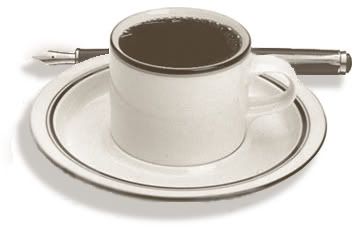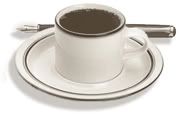March 20
For a change, that evening, we skipped coffee and ordered hot lemons.
We weren’t supposed to go out at all that day, since they’d discovered a cooker-bomb in their garden last night.
The police had come by to take it away, and the army too. They asked lots of questions and arrested one man, who they said, was a Maoist. The whole family had been awake all night and she, of course, had spent most of it talking to me on the phone.
She’d joked, “Wait till my dad sees the phone bill. He’ll explode like a cooker-bomb himself!”
How could she laugh, I asked her, when the Maoists were trying to blow up her family?
She’d scoffed, “Maoists! They’re probably just university dropouts who couldn’t get into the army. They must have come for a midnight picnic in our garden and left the bomb behind by mistake.”
And so, Maoists notwithstanding, we slipped out that evening, telling her mother that we were only going to take a walk in
Ganesh Basti. And we went to drink hot lemons at our usual haunt,
The bakery cafe.
She, as usual, went without sugar. Silly girl! Always denying herself food-pleasure.
“Food-pleasure is a wonderful thing. The only wholesome thing. One which doesn’t need another person around,” I reminded her.
She sipped the hot lemon and burnt her lips. “You can take my share of the pleasure.”
“That,” I said, “I will, thank you.” I added three cubes to my hot lemon.
She stared at the sugar-bowl for a long time.
“What now?” I asked.
“No, I was just thinking,” she said.
“What?”
“My share.”
“What about it? Pleasure?”
“No… how easily I said ‘my share’. Like it was
mine really.”
I swept my hand in waves of non-comprehension, about my head.
She was impatient with my stupidity. “Mine.
Mine means I own it. Which means that pleasure – which is an abstract - can belong to individuals.”
I sipped my hot lemon deeply, slurping slightly. “You’re on the property trip again.”
“Yes, but isn’t funny?”
“Property? I think it’s… nice. It would be nice to have some.”
“But isn’t it funny too? Like, how it is this and that?”
I settled back with my glass, scratched my ear and leaned my head against the wall. There wasn’t any stopping her now.
She went on. “Ok, how do you define property? And ever noticed how ‘property’ is the word that goes into the defining of anything.”
“Umm. Like those questions they asked us in organic chemistry…. What are the properties of carbon monoxide?”
“Exactly! Therefore, the properties of carbon determine how it will react with sulphur. What a thing is, determines what a thing can be, and how it mixes with other things. And so it stands to reason that what a man is, is defined by his properties; and his properties determine what he will become, when he comes into contact with other men.”
“So?”
“So? So, property then, is the key to civilization!” she threw her hands in the air.
“I see,” I said and sipped some more hot lemon. “It’s cool now. Drink it up.”
She was starting to get sulky. I sighed.
I'd have to take the property and mankind issue seriously now. So I finished the hot lemon and ordered another before jumping in with, “Ok! But is property the thing that you have?
Or the thing that has you? The grip on your neck, or the strength of your fist?”
She shrugged and swilled the phrases around her mouth a little.
I continued, “And does it follow then, that if I want to own something, to control something or somebody, I have to let it define me? What I do already defines me. My clothes, my words, my friendships. These control who I meet and who wants to meet me. And If I want to change what I control or what controls me, I must change the things that define me, which is -”
“Property!” she finished it for me.
“Exactly. But how do I change my property, without help from my property?”
She gargled with this one; meanwhile, my second drink arrived and I dunked another three cubes of sugar into it.
Then she looked away at the next table, which was empty. “Maybe the only thing that can be changed is definitions. To buy new property, just re-define someone else’s property as yours.”
“And this someone else will let you?”
She shrugged. “You can get away with it. Same thing.”
“Not quite.”
“Yes it is. Like, this hot lemon. My hot lemon. Your hot lemon. We haven’t paid for it. So it’s not our property yet. It is the property of the café owner.”
“True, but it wasn’t ours to consume really. It was a loan.”
“But now that we’ve consumed the hot lemon... it’s not something that the owner can take back from us. It’s in our tummies, and half-digested. He can’t reuse it to us.”
“So?”
“We have the option of changing the definition of property. Whoever consumes something is entitled to its ownership.”
“Rubbish!” I spluttered.
“Not so. It’s in our tummies. The tummies are ours. The water and lemons were the café owner’s property because we found them on his property. Now these things are lodged inside our property, so they’re ours.”
“That’s crime.”
“That’s revolution.”
We walked out without paying, after all. Funny, but they let us get away with it.
Revolution, it turned out, isn’t so hard, after all.









